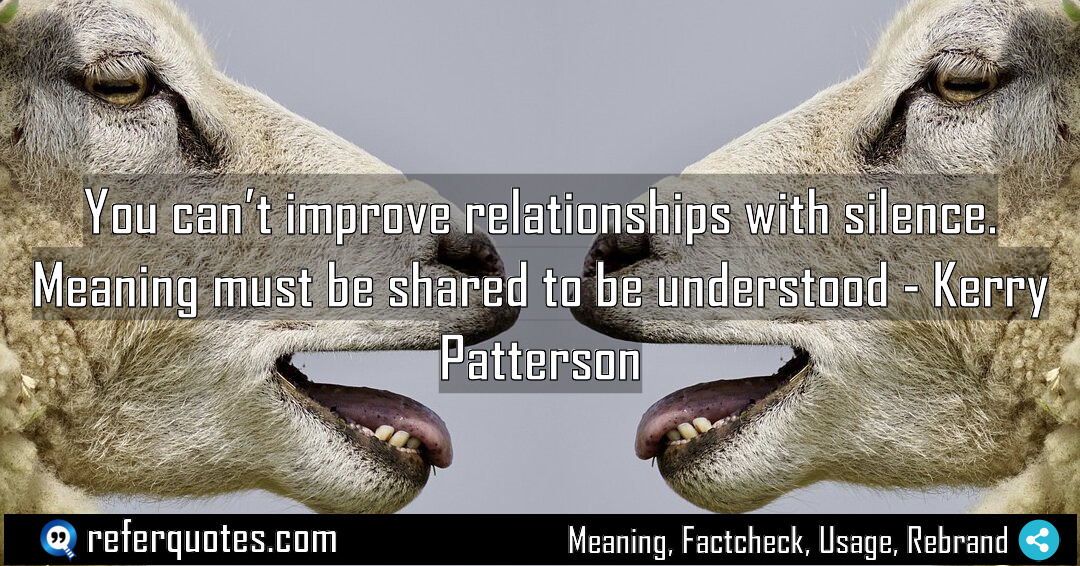You can’t improve relationships with silence. It’s a truth I’ve seen play out in boardrooms and break rooms for years. Silence doesn’t resolve tension; it just stores it up for a nastier explosion later. Real understanding requires the messy, brave work of sharing what you actually mean.
Share Image Quote:Table of Contents
Meaning
At its core, this quote means that passive silence is an active barrier to connection. You can’t just hope things get better by avoiding the conversation.
Explanation
Let me break this down. We all fall into the trap of thinking that “keeping the peace” by staying quiet is the noble choice. But here’s the thing I’ve learned: that’s an illusion. Silence isn’t peaceful; it’s a vacuum where assumptions and resentment grow. The “meaning” they talk about is your perspective, your story, your feelings. If you don’t share that, you’re asking the other person to read your mind. And they’ll always get it wrong. The act of sharing—even imperfectly—is what builds the bridge. It’s the only way to get to a shared pool of meaning where real understanding and solutions live.
Quote Summary
| Context | Attributes |
|---|---|
| Original Language | English (3668) |
| Category | Relationship (329) |
| Topics | communication (196), sharing (5), understanding (119) |
| Literary Style | practical (126), straightforward (17) |
| Emotion / Mood | encouraging (304) |
| Overall Quote Score | 79 (243) |
Origin & Factcheck
This gem comes straight from the 2002 book “Crucial Conversations,” written by a powerhouse team of corporate trainers: Kerry Patterson, Joseph Grenny, Ron McMillan, and Al Switzler. You’ll sometimes see it misattributed to general communication gurus, but its true home is in their research on high-stakes dialogue.
Attribution Summary
| Context | Attributes |
|---|---|
| Author | Kerry Patterson (35) |
| Source Type | Book (4032) |
| Source/Book Name | Crucial Conversations: Tools for Talking When Stakes Are High (35) |
| Origin Timeperiod | 21st Century (1892) |
| Original Language | English (3668) |
| Authenticity | Verified (4032) |
Author Bio
Kerry Patterson coauthors influential books that help people tackle tough conversations, drive change, and build accountability at work and beyond. He cofounded VitalSmarts (now Crucial Learning) and spent decades developing training that organizations implement globally. He earned a master’s degree from Brigham Young University and completed doctoral work in organizational behavior at Stanford, and he has taught and consulted widely. The Kerry Patterson book list includes Crucial Conversations, Crucial Accountability, Influencer, and Change Anything—bestselling titles that continue to shape modern leadership and communication practices.
| Official Website
Where is this quotation located?
| Quotation | You can’t improve relationships with silence. Meaning must be shared to be understood |
| Book Details | Publication Year/Date: 2002; ISBN/Unique Identifier: 9780071771320; Last Edition: 3rd Edition (2021); Number of Pages: 272. |
| Where is it? | Chapter: Pool of Shared Meaning, Approximate page from 2021 edition |
